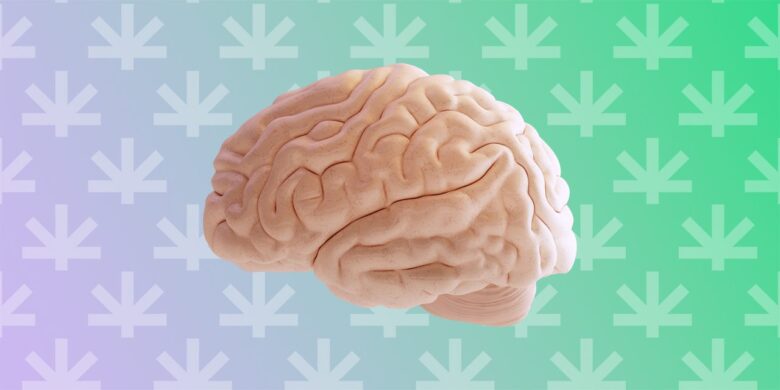Unhealthy brain function can reduce a person’s quality of life both physically and cognitively. Does CBD affect your brain? Yes, you can experience a significant shift in your brain’s health by using organic CBD products. Even though most of the therapeutic benefits of CBD are just being unveiled, evidence already suggests that CBD could potentially boost your brain health. This is due to its ability to protect the brain cells and slow down the progress or onset of neurodegenerative health disorders such as Alzheimer’s. Below Is An Overview Of Various Forms Of Cbd Products And Their Usage. Besides That, This Article Offers A Comprehensive Review Of The 5 Ways Cbd Affects The Brain.
Contents
What is CBD or Cannabidiol?
Cannabidiol (CBD) is an active ingredient found in the cannabis hemp plant. It’s non-psychoactive and known for its wide range of health benefits. This is because studies indicate that it has properties such as neuroprotective, anti-inflammatory, analgesic, antioxidant, anxiolytic, and others.
Forms of CBD Available Right Now

Source: leafwell.com
CBD is a versatile compound that can be found in many forms and various modes of application, including:
CBD Oil and Tinctures: They are fluid-based CBD products made for oral intake or sublingual application under the tongue. Recently, unlike tincture, CBD oil mostly gained popularity in minimizing anxiety conditions.
CBD Capsules: They are oral products for swallowing. Like CBD oil, CBD oil is also used for overall wellness. Moreover, it has less bioavailability since it is taken orally.
CBD Gummies: These are delicious CBD edibles that are usually chewed and are commonly used for sleep, anxiety and other conditions.
CBD Topicals: they include products such as slaves, lotions, and ointments. They are used for external application, on a specific part of the skin.
CBD Vapes Oil: They come in vape pens with cartridges. These are products that are typically consumed via inhalation of heated CBD vapor.
How Does CBD Affect Your Brain?
The human body consists of the endocannabinoid system (ECS) which regulates normal function. ECS has numerous endocannabinoids, i.e.; neurotransmitters that normally bind to the receptors found in the central nervous and peripheral nervous systems. As a result, ECS plays a role in regulating various physiological and cognitive processes, including pain, appetite, memory, and stress response.
ECS has two main receptors that CBD normally interacts with, CB1 and CB2. CB1 receptors are mainly found in the central nervous system and help to regulate pain, mood, and coordination. On the other hand, CB2 receptors are found mainly in the immune system and the body and play a role in influencing pain and inflammation response. This way, CBD can affect your brain by supporting activities that relate to memory, mood changes, pain, and stress response.
5 Ways CBD Affects our Brain

Source: blog.insidetracker.com
CBD has antioxidant, analgesic, and anti-inflammatory properties that can positively affect brain connectivity patterns and activity during performances and resting state. The top 5 ways CBD can affect our brain include:
1. CBD Reduces Blood Flow
It is not clear how CBD may reduce blood flow, as there is limited research on this topic and the mechanisms by which CBD may affect blood flow are not fully understood. Some studies have suggested that CBD may affect blood pressure and circulation, but more research is needed to confirm these findings and to determine the exact mechanisms by which CBD may affect these processes. It is important to note that CBD is not a medication and should not be used to treat any medical condition without the guidance of a healthcare professional. For more information on the potential uses and benefits of CBD oil for anxiety, you may want to check out this review. Please keep in mind that the safety and effectiveness of CBD and other complementary and alternative therapies have not been fully established, and it is important to speak with a healthcare professional before starting any new treatment.
2. Reduces Oxidative Damage
Oxidative stress normally leads to several neurological diseases, including Alzheimer’s disease, Parkinson’s disease, memory loss, depression, and multiple sclerosis. While the body can manage oxidative stress at a cellular level, sometimes the response mechanism isn’t enough. As a result, there will be many free radicals and fewer antioxidants in the body which will lead to oxidative damage.
However, taking CBD can help reduce this. CBD compounds normally work on the CB2 receptors to reduce the level of oxidative damage. The cannabis compound has strong antioxidant and neuroprotective properties, similar to vitamins C and E.
3. CBD Works to Manage Pain

Source: forbes.com
For thousands of years, people have used cannabis extracts to alleviate pain. Even though THC’s pain-killing properties have long been known, there are still some debates going on while describing the topic of CBD or THC for pain relief.
It was shown that CBD compounds could also help to relieve pain effectively. Its mechanism of action is based on the CB2 receptors that are mainly found in the immune system.
Understand that chronic and persistent pain normally prologs chemical and systemic brain changes. Consequently, this often leads to real psychological effects that impact brain function in the long run. Moreover, If you want to ease your chronic pain without experiencing a high, use CBD products for pain relief. When you do not mind having a little euphoria, then choosing THC for pain can be the ideal option for you. Here, THC provides a high effect, while CBD has anti-inflammatory and analgesic properties that enhance the pain relief your body gets.
4. CBD Lowers the Degree of Excitation in Brain Cells
Excessive brain stimulation can lead to neurological deficits due to the excitotoxic death of the brain cells. This is what often causes neurodegenerative diseases such as Alzheimer’s and multiple sclerosis. Additionally, excitotoxicity can cause stroke, hearing loss, and traumatic brain injury.
Recent research studies show that it could be beneficial to use CBD for traumatic brain injury and other conditions caused by excitotoxicity. It’s been found that CBD can potentially shift the levels of glutamate-glutamine (GLx) and GABA metabolites. It should be noted that these metabolites play a role in the regulation of excitatory and inhibitory neurotransmission in typical and autistic brains. But researchers indicate that there is still a need for more studies in this area.
5. CBD Has Significant Antipsychotic Properties
CBD’s antipsychotic properties are based on its impact on anandamide. It should be noted that anandamide is a neurotransmitter that helps improve moods and reduce pain sensitivity. In the human body, anandamide is usually broken down by the fatty acid amide hydrolase (FAAH).
However, the presence of CBD in the body normally helps inhibit the function of the FAAH enzyme, leading to anandamide receptors staying active in the endocannabinoid system for longer, resulting in enhanced potency.
It was indicated that high levels of anandamide in the body usually lead to reduced psychotic symptoms. On the other hand, it’s been found that high levels of anandamide in cerebrospinal fluid inversely correlate with symptoms of psychosis.
Side Effects of CBD

Source: salon.com
So, is CBD good for the brain and safe to use? Although CBD is well-tolerated, it can result in potential side effects such as:
- Fatigue
- Drowsiness
- Dry mouth
- Low blood pressure
- Lightheadedness
However, most of these side effects are usually mild and will quickly go away as soon as the effects of CBD subside. Avoid using CBD products if you are using supplements and medications such as antidepressants, blood thinners, and opioids since this can result in a possible drug interaction.
Final Thoughts
CBD is a beneficial organic compound that can significantly improve wellness. CBD products can help support brain health by managing conditions such as pain, blood flow, oxidative damage, and brain fog among others. It works naturally with the brain receptors to positively alter brain connectivity patterns and activities. However, there is still a need for more confirmatory studies to determine the neurological effects of CBD. This will also help to determine issues such as CBD dosing and safety.
